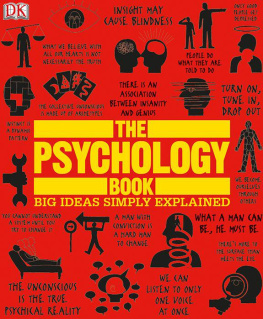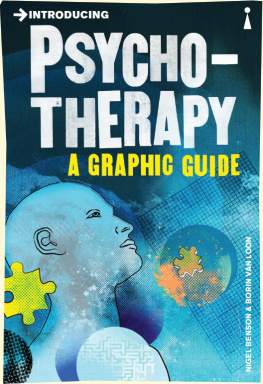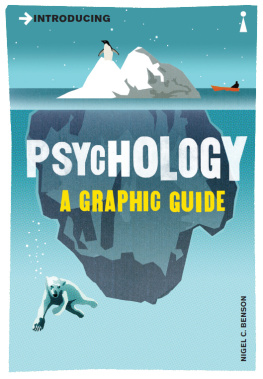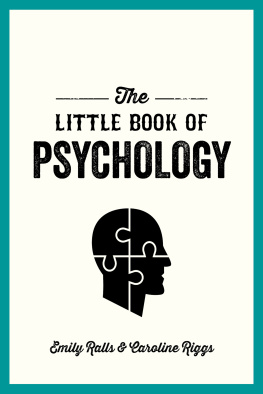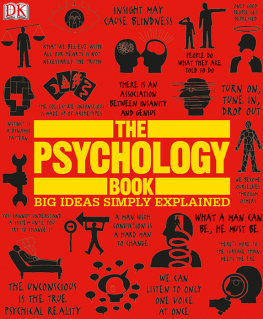Among all the sciences, psychology is perhaps the most mysterious to the generalpublic, and the most prone to misconceptions. Even though its language and ideas haveinfiltrated everyday culture, most people have only a hazy idea of what the subject isabout, and what psychologists actually do. For some, psychology conjures up images ofpeople in white coats, either staffing an institution for mental disorders or conductinglaboratory experiments on rats. Others may imagine a man with a middle-European accentpsychoanalyzing a patient on a couch or, if film scripts are to be believed, plotting toexercise some form of mind control.
Although these stereotypes are an exaggeration, some truth lies beneath them. It isperhaps the huge range of subjects that fall under the umbrella of psychology (and thebewildering array of terms beginning with the prefix psych-) that creates confusionover what psychology entails; psychologists themselves are unlikely to agree on a singledefinition of the word. Psychology comes from the ancient Greek psyche, meaning soul or mind, and logia, a study or account, which seems to sum up thebroad scope of the subject, but today the word most accurately describes the science ofmind and behavior.
The new science
Psychology can also be seen as a bridge between philosophy and physiology. Wherephysiology describes and explains the physical make-up of the brain and nervoussystem, psychology examines the mental processes that take place within them and howthese are manifested in our thoughts, speech, and behavior. Where philosophy isconcerned with thoughts and ideas, psychology studies how we come to have them andwhat they tell us about the workings of our minds.
All the sciences evolved from philosophy, by applying scientific methods tophilosophical questions, but the intangible nature of subjects such asconsciousness, perception, and memory meant that psychology was slow in making thetransition from philosophical speculation to scientific practice. In someuniversities, particularly in the US, psychology departments started out as branchesof the philosophy department, while in others, notably those in Germany, they wereestablished in the science faculties. But it was not until the late 19th centurythat psychology became established as a scientific discipline in its ownright.
The founding of the worlds first laboratory of experimental psychology by WilhelmWundt at the University of Leipzig in 1879 marked the recognition of psychology as atruly scientific subject, and as one that was breaking new ground in previouslyunexplored areas of research. In the course of the 20th century, psychologyblossomed; all of its major branches and movements evolved. As with all sciences,its history is built upon the theories and discoveries of successive generations,with many of the older theories remaining relevant to contemporary psychologists.Some areas of research have been the subject of study from psychologys earliestdays, undergoing different interpretations by the various schools of thought, whileothers have fallen in and out of favor, but each time they have exerted asignificant influence on subsequent thinking, and have occasionally spawnedcompletely new fields for exploration.
The simplest way to approach the vast subject of psychology for the first time isto take a look at some of its main movements, as we do in this book. These occurredin roughly chronological order, from its roots in philosophy, through behaviorism,psychotherapy, and the study of cognitive, social, and developmental psychology, tothe psychology of difference.
"Psychology has a long past, but only a short history."
Hermann Ebbinghaus

